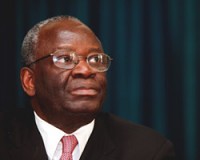
Ibrahim Gambari of Nigeria says that the planned African Standby Force will not be ready in 2015 due to lack of funding., a photo by Pan-African News Wire File Photos on Flickr.
Why funding may stall African Standby Force’s take-off, by Gambari, others
FRIDAY, 23 AUGUST 2013 00:00
FROM KARLS TSOKAR, ABUJA
Nigerian Guardian
FOR the fourth time, indications have again emerged that the operations of the African Standby Force planned to take-off in 2015 may not be realistic owing to lack of fund.
The African Union-backed continental peacekeeping force was initially meant to take off in 2008, but was moved to 2010.
It was subsequently shifted to 2013 and due to delays by three African regions to establish standby brigades, it was again rescheduled for 2015.
However, the Head of African Union (AU) team to the Economic Community of West African States (ECOWAS) Commission, Ambassador Ibrahim Gambari, while assessing the preparedness of the ECOWAS Standby component of the continental force yesterday in Abuja before proceeding to East, North and Central Africa, said funding is a key challenge to the take-off of the force.
Gambari said: “There are challenges. One of the critical challenges is funding. Not just funding, as the operation is ongoing, but how to sustain it or even funding ahead of it. And these are challenges that the African Union and the economic community have to face.
“From the experience of the ECOWAS standby force that we deployed in Guinea Bissau and Mali, it is the same issue of funding. You will discover that many of the countries have their own internal national priority demands.”
The envoy also pointed out that their mandate is to find out what these challenges are, “get a report that addresses, where we are, the challenges we face and how we can perform better. Because we have seen in the case of Mali that we may have the most beautiful standby force on paper, but when it comes to rapid deployment, it is not always there.”
He also stated that it was imperative to look at the various components that make up the AU Standby Force critically, “the military component, the civilian component, their capabilities, what are the shortfalls, how come the military is always the head, how come in the most complicated peace keeping in the world, the police and civilian components are very important. So, how do we bring them up to par with the other components”.
Reacting, the Minister of State for Defence, Erelu Olusola Obada, said Africa must not always depend on the international community to accomplish their goals, especially in the face of security challenges and threat to peace and democracy.
Also, the Chief of Defence Staff, Admiral Ola Sa’ad Ibrahim, said everything depend on funding because deploying troops to the troubled spots is not much of a challenge but “when it matters most, it revolves around funds”.
In a bid to forestall growing cases of conflict in Africa, the regional standby force is part of the AU Peace and Security design that seek to set up about 30,000 troops, ready to be called upon from contributing countries at a short notice to intervene in cases of conflict on the continent.
With the military and police components focused on combat and other such briefs, the civilian component is to ensure respect for human rights during intervention, ensure safety of the displaced, initiate political dialogue with the objective of a ceasefire, and monitor disarmament, demobilisation and re-integration.
No comments:
Post a Comment